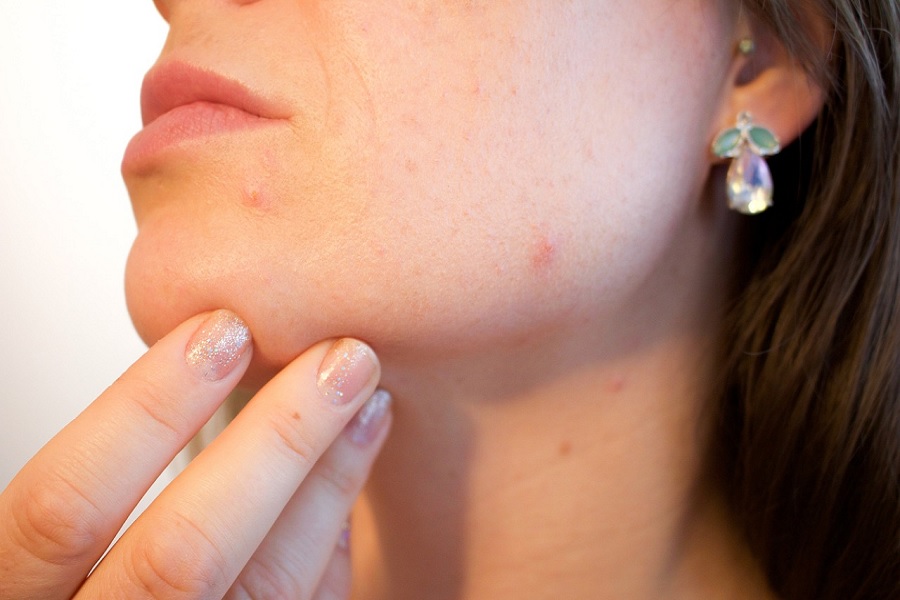
Follow us Now on Telegram ! Get daily 10 - 12 Interesting Updates. Join our Telegram Channel https://t.me/OhWomen
Download Telegram App before Joining the Channel
Acne and breakouts are some of the most common skin concerns affecting people of all ages, especially teenagers and young adults. While they can sometimes feel like a never-ending battle, the good news is that with the right treatment and prevention strategies, acne can be managed effectively. In this article, we’ll explore the causes of acne, how to treat it, and how to prevent future breakouts from occurring.
Understanding Acne: What Causes Breakouts?
Acne occurs when hair follicles are clogged with excess oil (sebum), dead skin cells, and sometimes bacteria. This creates an environment where pimples, blackheads, and cysts can form. Several factors contribute to the development of acne, including:
Hormonal Changes: Hormones, especially during puberty, menstruation, or pregnancy, can increase sebum production, leading to clogged pores.
Excess Oil Production: Overactive sebaceous glands produce more oil, contributing to clogged pores and acne.
Bacteria: The bacteria Propionibacterium acnes can infect clogged pores, leading to inflammation and pimples.
Diet and Stress: High-glycemic foods, dairy, and stress have been linked to flare-ups in some individuals.
Certain Medications: Some medications, like steroids, can trigger acne in susceptible individuals.
Effective Treatments for Acne
Treating acne can take time, but consistency is key to seeing results. Here are some of the most effective treatments for managing acne and breakouts:
1. Topical Treatments
Benzoyl Peroxide: This is one of the most common over-the-counter treatments for acne. It works by killing acne-causing bacteria, reducing inflammation, and preventing clogged pores. Start with a low concentration (2.5%) to avoid irritation.
Salicylic Acid: A beta-hydroxy acid (BHA) that exfoliates the skin and helps unclog pores. It’s particularly effective for blackheads and whiteheads.
Retinoids: These Vitamin A derivatives speed up cell turnover, preventing clogged pores and helping to reduce the appearance of acne scars. Tretinoin, a prescription retinoid, is widely used for treating acne.
Tea Tree Oil: A natural antibacterial agent, tea tree oil can help reduce acne-causing bacteria and calm inflammation. It’s a gentler alternative for sensitive skin.
2. Oral Medications
Antibiotics: In cases of severe acne, doctors may prescribe antibiotics like doxycycline or tetracycline to reduce bacteria and inflammation.
Oral Contraceptives: For females, birth control pills can regulate hormones that contribute to acne by decreasing the production of sebum.
Isotretinoin: For severe, cystic acne that doesn’t respond to other treatments, isotretinoin (Accutane) is an oral retinoid that reduces sebum production and prevents clogged pores. This treatment is typically reserved for severe cases due to potential side effects.
3. Professional Treatments
Chemical Peels: Dermatologists use chemical solutions (such as salicylic acid or glycolic acid) to exfoliate the skin and remove dead skin cells, helping to clear blocked pores.
Laser Therapy: Laser treatments, like blue light therapy, target acne-causing bacteria and reduce oil production in the skin.
Microdermabrasion: This treatment exfoliates the skin using fine crystals to remove dead skin cells and improve skin texture, which can reduce acne scarring.
Prevention Tips: How to Keep Acne at Bay
While treatment is important, prevention is just as crucial to reducing the frequency and severity of breakouts. Here are some practical prevention tips:
1. Cleanse Gently
Cleansing your skin twice a day is important to remove excess oil, dirt, and makeup. However, over-washing can strip your skin of its natural oils, leading to more oil production. Use a gentle, non-comedogenic cleanser that won’t clog pores.
2. Avoid Touching Your Face
Your hands carry oils, dirt, and bacteria, which can transfer to your face when you touch it. Avoid resting your face on your hands, and make sure to wash your hands before applying skincare products or makeup.
3. Use Non-Comedogenic Products
Always opt for skincare and makeup products labeled as "non-comedogenic," meaning they are less likely to clog pores. Look for oil-free formulas if you have oily or acne-prone skin.
4. Keep Hair Clean
Oily hair can transfer oil and product buildup to your face, leading to breakouts, especially along the forehead and temples. Wash your hair regularly and avoid letting it touch your face if it’s greasy.
5. Stay Hydrated
Drinking enough water is essential for maintaining skin health. Proper hydration helps to keep your skin balanced, reducing excess oil production and promoting a clearer complexion.
6. Maintain a Healthy Diet
Diet can influence your skin health. While the link between diet and acne is still being researched, some studies suggest that high-glycemic foods (like white bread and sugary snacks) and dairy products can exacerbate acne. A diet rich in antioxidants, vitamins, and omega-3 fatty acids can promote clearer skin.
7. Manage Stress
Stress triggers the release of cortisol, a hormone that increases sebum production. Find ways to manage stress through exercise, meditation, or relaxation techniques, which can help prevent stress-induced breakouts.
When to Seek Professional Help
If your acne is persistent, severe, or leaving behind scars, it’s important to consult with a dermatologist. They can provide a personalized treatment plan, including prescription medications and professional treatments, to effectively manage your acne.
Conclusion
Acne can be a frustrating condition, but with the right treatment and prevention strategies, it is possible to manage breakouts and achieve clearer skin. Consistency, patience, and a tailored skincare routine are essential to overcoming acne. By using effective treatments, practicing good skincare habits, and making lifestyle adjustments, you can minimize acne flare-ups and enjoy healthier, more radiant skin.
Source - OhWomen